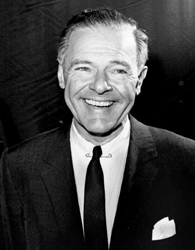A senator and ambassador to Vietnam, Henry Cabot Lodge was a key player in the Cold War, and an adored political figure among Republicans. He made the decisions that set the Vietnam War in motion, but tried desperately to facilitate the peace talks that would end it.
Henry Cabot Lodge’s Early Days
Henry Cabot Lodge Jr. was born on July 5, 1902, in Nahant, Massachusetts. He came from a long line of noteworthy Americans, including George Cabot, a Revolution-era privateer and Massachusetts senator, and his namesake and grandfather, Massachusetts Senator Henry Cabot Lodge, unofficially the first ever Senate majority leader. Henry’s father, noted poet George Cabot Lodge, died when he was 7 years old.
After graduating from Middlesex School in Concord, he advanced on to Harvard University. Initially, he pursued journalism until he was elected to the Massachusetts State Legislature, and then to the Senate in 1936.
Lodge resigned his senatorial seat in 1944 to fight in World War II. He said that “given my age and military training, I must…serve my country as a combat soldier in the Army overseas.” He would be decorated with the French Legion of Honor and Croix de Guerre after the war.
Even prior to his resignation he was active in the war effort. In a photograph on the official site of the U.S. Senate, he is seen in New Guinea awarding a soldier the Purple Heart.
Sources in this Story
- Encyclopedia.com (Encyclopedia of World Biography): Henry Cabot Lodge Jr.
- Time: Lodge to the Field
- Biography Directory of the Unites States Congress: Lodge, Henry Cabot, Jr.
- Cold War Museum: The Lodge Act
- George Washington University: The Eleanor Roosevelt Papers (American National Biography Online): Henry Cabot Lodge Jr.
- Time: Toward Disarmament
- Time: The Great Surprise
- The National Security Archive (The George Washington University): JFK and the Diem Coup
- Time: Lodge Leaves Paris
Lodge’s Political Career
Lodge was known throughout his career for drawing a sharp line when it came to Cold War policy. As a senator, he helped to pass the Lodge Act in 1951. The purpose of the legislation was “primarily to create teams that could be dropped into Eastern Europe to organize, train and lead partisan resistance and sabotage of Soviet supply lines,” explains Cold War Museum.
Lodge’s long tenure as a Massachusetts senator was ultimately brought to a close in 1952 by John F. Kennedy. Lodge had neglected his own senatorial race to serve as manager for Dwight Eisenhower’s presidential campaign.
Eisenhower displayed his gratitude for Lodge’s work on his campaign by appointing the former senator as U.S. ambassador to the United Nations. In 1957, during Cold War negotiations, Lodge offered a plan for safe and tempered disarmament. He took his typically moderate stance, stating, “It is not possible to turn backward the clock of nuclear discovery and development, nor to repeal the nuclear age.”
His suggestions reflected both a universal commitment to disarmament and a desire to protect America. Essential to his proposal was the idea of “foolproof inspection,” but the Soviets would not agree to it.
Lodge grew popular as an ambassador and left his position to run for vice president alongside Richard Nixon in 1960. After his first week of campaigning, Lodge had drawn a kind of enthusiasm and highly vocal support from crowds “that a vice-presidential candidate rarely gets,” wrote Time.
In a Gallup poll, Lodge ranked higher than his running mate and the opposing ticket of Kennedy and Lyndon B. Johnson. Time wrote, “If Hollywood were casting Distinguished-Politician-as-Good-Guy, it could hardly find a likelier looking specimen than towering (6 ft. 2¼ in.), handsome Cabot Lodge.”
However, the article speculated that Lodge had several things going for him beyond simple charisma. His role in the UN had made him a well-known television figure, and his behavior made people trust him. He retained a few old principles of isolationism, while forging a relationship with the modern world, especially in the face of the Cold War.
After he and Nixon lost, Lodge moved away from politics until Kennedy made him the U.S ambassador to South Vietnam. As ambassador, he helped to initiate the U.S. military coup in South Vietnam.
Although Lodge was instrumental in the U.S. occupation of Vietnam, as the war dragged on he shifted sides and favored troop withdrawal. He was named U.S. negotiator to the Paris peace talks in 1969, but retired almost a year later when the talks continued to prove fruitless.
Lodge claimed he wanted to return to his 10 grandchildren, saying, “I am not a diplomat. I am a family man, and I miss my family,” but it was assumed that if talks had been going well, he would have stayed on.
The Rest of The Story
From 1970 to 1977 Lodge served as a special U.S. envoy to the Vatican. During that time, he wrote about his Cold War experiences in “The Storm Has Many Eyes: A Personal Narrative.”
Lodge died on February 27, 1985, and was buried at the historic Mount Auburn Cemetery in Cambridge, Massachusetts.
This article was originally written by Rachel Balik; it was updated May 31, 2017.











